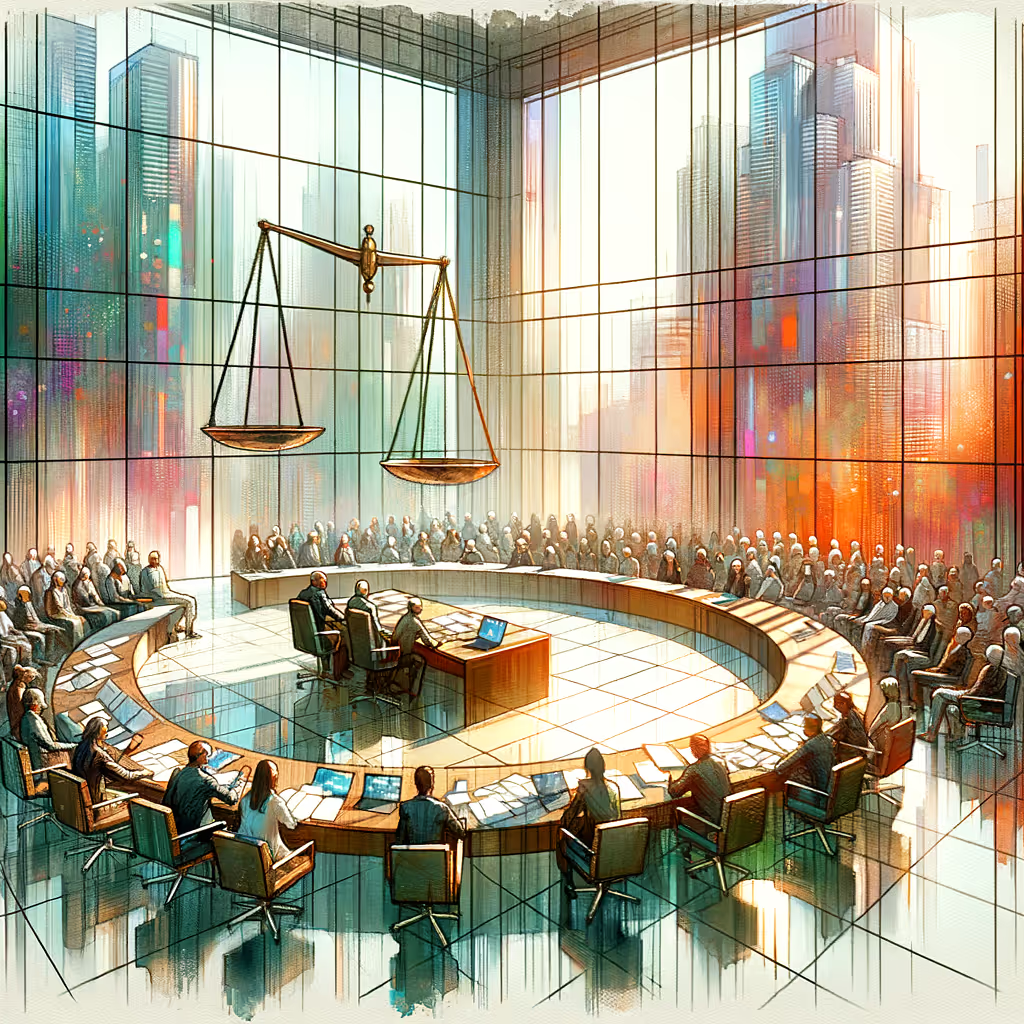Brazil's Supreme Court Balances Free Speech and Regulation on Social Media

The Intricate Dance of Free Speech and Regulation: Brazil's X Dilemma
In the ever-evolving landscape of social media regulation, Brazil's Supreme Court finds itself at a critical juncture. The nation's Supreme Federal Court is poised to make a pivotal decision regarding the future of the social media platform X, formerly known as Twitter, which could set a precedent for digital communication worldwide.
Background of the Conflict
The controversy began when Justice Alexandre de Moraes, a key figure in Brazil's judiciary, took a firm stance against X following its acquisition by Elon Musk in 2022. Musk's vision of transforming X into a bastion of free speech clashed with local laws aimed at curbing misinformation and extremist content. This conflict escalated when Moraes directed X to suspend accounts linked to anti-democratic activities, a move Musk publicly decried as censorship.The situation intensified with X's closure of its Brazilian office in August 2024, citing potential legal actions against its representatives. This led to Moraes demanding the appointment of a new legal representative within a tight 24-hour window, a directive that was met with resistance and resulted in the temporary suspension of X's operations in Brazil.This judicial move has sparked a broader debate on the balance between free speech and the regulation of digital platforms, particularly concerning the spread of misinformation.
Legal and Political Repercussions
The legal battle took a new turn when the Brazilian Bar Association and the political party Partido Novo challenged the platform's suspension. Justice Nunes Marques responded by involving the Prosecutor General’s Office (PGR) and the Solicitor General’s Office (AGU), emphasizing the case's complexity and its profound implications on public and social order.At the same time, Brazil's current administration, led by President Luiz Inácio Lula da Silva, continues to show unwavering support for Moraes. President Lula actively ensures that all entities, no matter their global influence, follow Brazilian laws. This approach reflects a broader effort to protect democratic integrity, which faced a significant challenge during the January 2023 insurrection. That event, similar to the U.S. Capitol riots, saw supporters of former President Jair Bolsonaro storm key government buildings.
Implications for Global Social Media Governance
The outcome of this case could have far-reaching effects beyond Brazil's borders. As nations grapple with the challenges posed by digital platforms, particularly concerning the spread of fake news and the incitement of violence, Brazil's handling of the X case could serve as a model either for its robust regulatory approach or as a cautionary tale about the potential overreach of government powers in digital spaces.This judicial saga also highlights the growing need for transparent and fair digital governance that respects free speech while curbing harmful misinformation. The global community is watching closely, as the decisions made now could define the regulatory frameworks for social media around the world.For more insights into the evolving role of digital platforms in societal governance, consider exploring the implications of decentralized autonomous organizations in reshaping organizational structures and regulatory approaches in the crypto space, as discussed in this detailed analysis.As Brazil's Supreme Court navigates this complex issue, the international legal and tech communities must consider the broader implications of its regulatory strategies. This case could very well dictate future interactions between global tech giants and governmental bodies, setting precedents that could influence global digital policy for years to come.For further reading on similar topics, you might find interest in how AI is reshaping recruitment strategies in the tech industry, available here.
